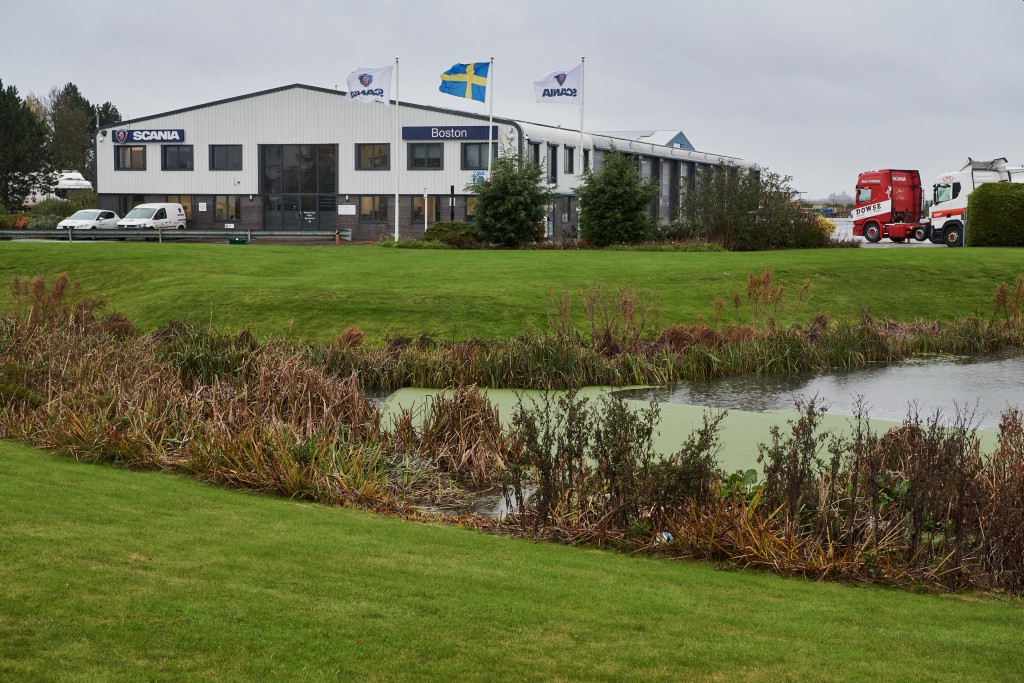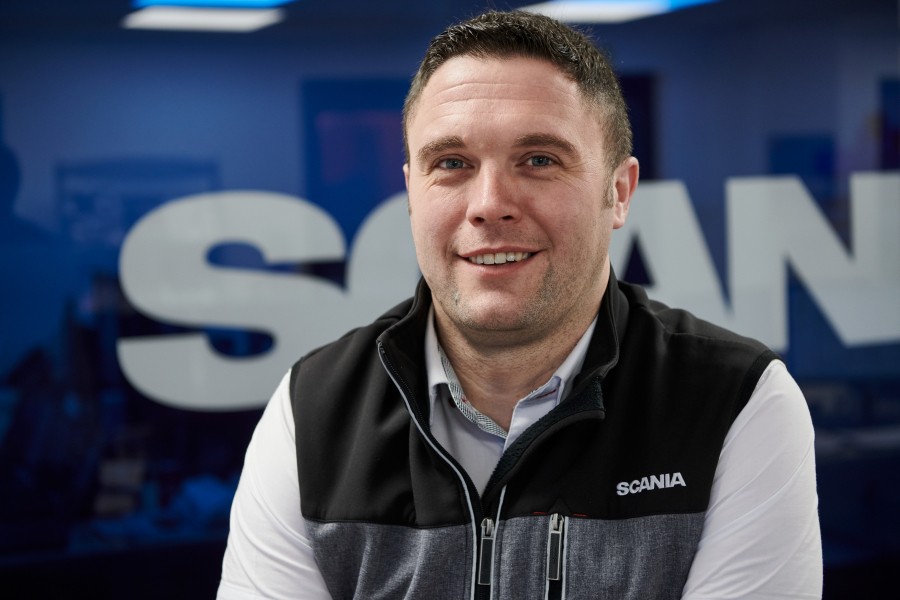The more complex the trucks on our roads become, the more difficult it becomes to diagnose issues with them immediately. In the old days, when something broke, it looked broken and could be repaired or replaced. With software systems carrying out a lot of the heavy lifting on a modern truck, there is not always an obvious solution in the workshop manual as the systems interact with each other – one small issue in one part of a system could impact a totally different area. To help their workshop network to benefit from all the tricks and fixes regarding these systems, Scania has put together an ‘Artificial Intelligence’ search system that all Scania technicians can access to see if a problems has been encountered already and what the solution was. Scania cites a recent example in the UK where the owner of a one-month-old had an oscillating idle speed in his new truck. But the newly built Scania workshop in the English town of Boston was racking its brains in vain to find a solution.
A video that the owner had recorded and a road test by the workshop both confirmed what the fault was, but the usual routines of checking Scania’s Follow-up Report Administration System and Scania Diagnose and Programmer couldn’t find a way to fix it.
AI Systems Search for a Fix
Luckily, the Boston workshop was able to benefit from trials of a universal search engine that uses the latest artificial intelligence technology.
This clever search looks over all the reports that have been written as a follow up to repairs for all Scania workshops worldwide in the Follow-up Report Administration System (FRAS).
The new technology is a simple but effective. Just having the FRAS system on its own isn’t good enough, as Scania’s service technicians around the world use different everyday expressions that aren’t necessarily the official terminology or proper word sequence. In the case of the S 650 customer, a search in FRAS for “uneven idle” was fruitless. But an AI search was immediately successful. The indicated software update was carried out, the problem was fixed, and the customer drove away happy.
Scania Great Britain’s technical support annually receives in excess of 10,000 FRAS cases from workshops, including both technical questions and quality deviation reports.
“In most cases we respond to the workshops with answers using information that is already available in FRAS or via other media available in Scania systems,” says Technical Manager Aaron McGrath, Scania Great Britain. “By utilising the AI search at workshops we can get the information exactly where it is needed; i.e. at the technicians’ fingertips, saving on troubleshooting lead-time and also improving customer uptime.”
Scania’s ‘Froogle’ smart search
The Boston dealership and workshop is a mid-sized depot with 17 service technicians and is located in the agricultural heartland of England, which means that many of its customers transport goods for the food industry. The workshop is open weekdays until midnight with shorter opening hours during weekends. Around 20 trucks a day come there for maintenance and repairs.
“There’s a lot more pressure on technicians and we need to be faster and faster,” says Workshop Manager Barry Poll. “The new truck generation has more electronic control units and more sensors. It’s like a different country.”
Supervisor and Escalation Engineer Ben Howlett, who started as an apprentice at the Boston workshop in 2003, recalls that trucks back then were fraught with mechanical problems.
“These days, the product is 100 times better, but diagnostics and software now take up a large part of our time. In diagnostics, a problem can take two hours, two days or two weeks.”
So, as the truck becomes more complex, workshop tools need to keep pace. Which is why the technicians welcome this new technology. Howlett even has a new name for it.
“The AI search engine is tremendously helpful. It’s a FRAS-Google, or Froogle,” he says.


